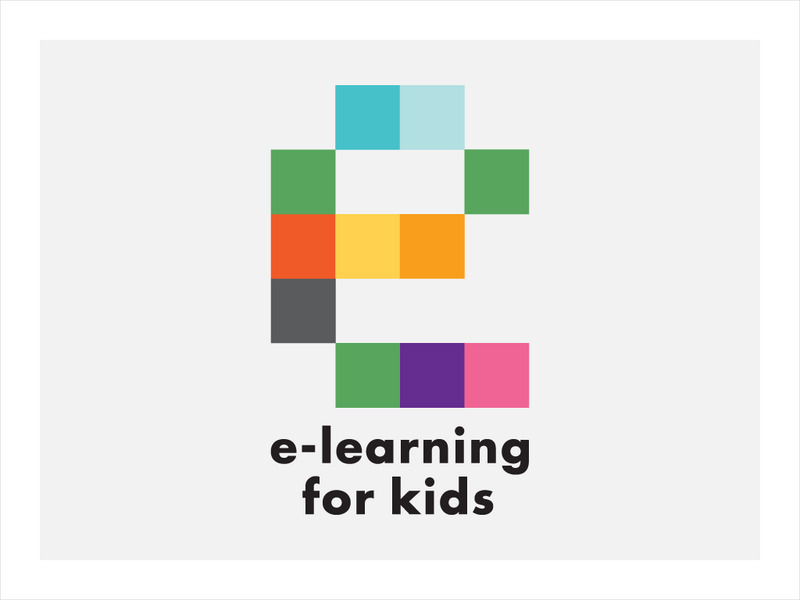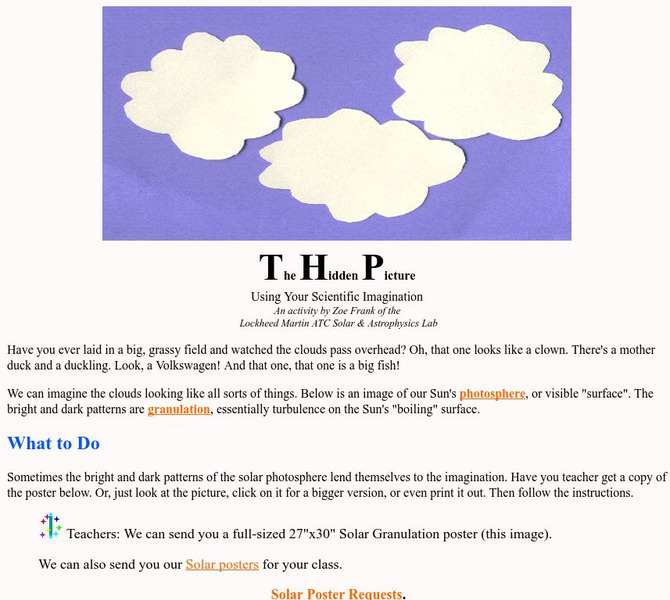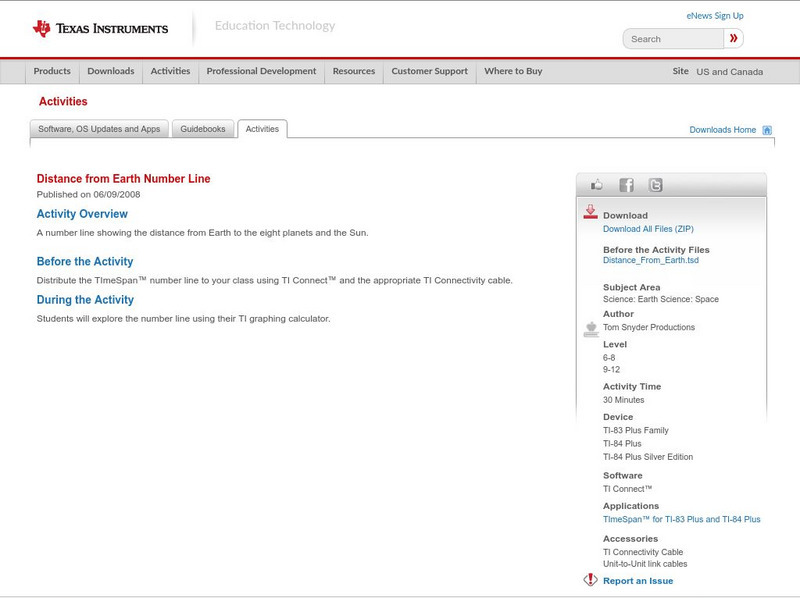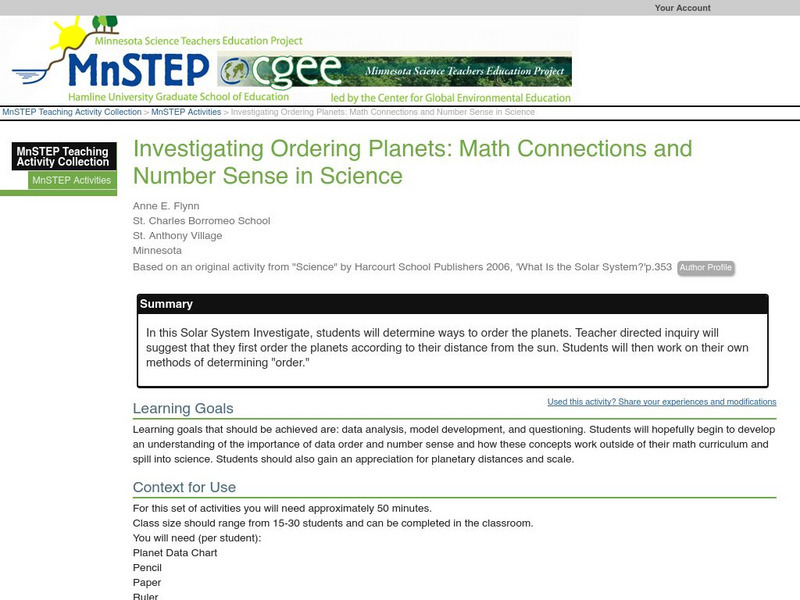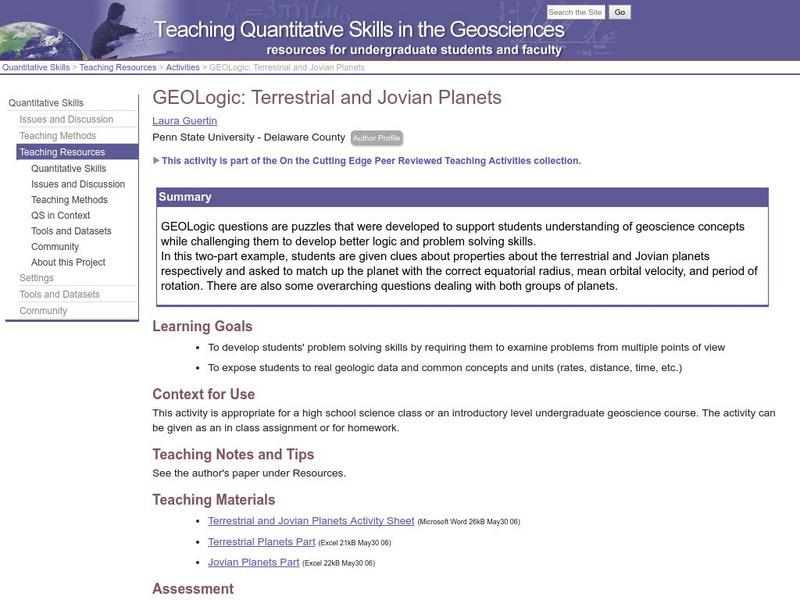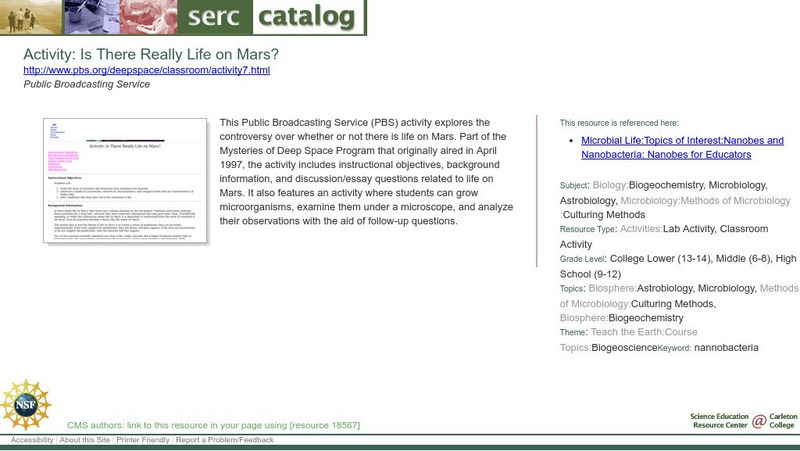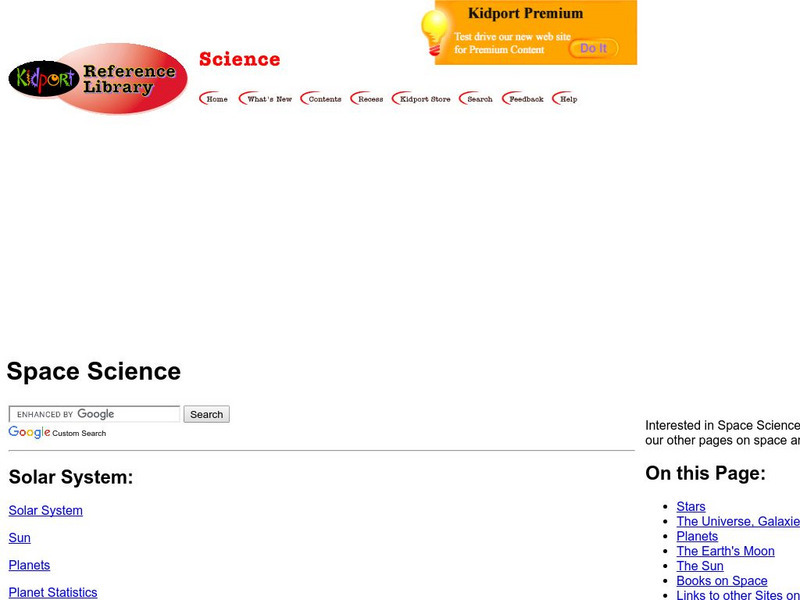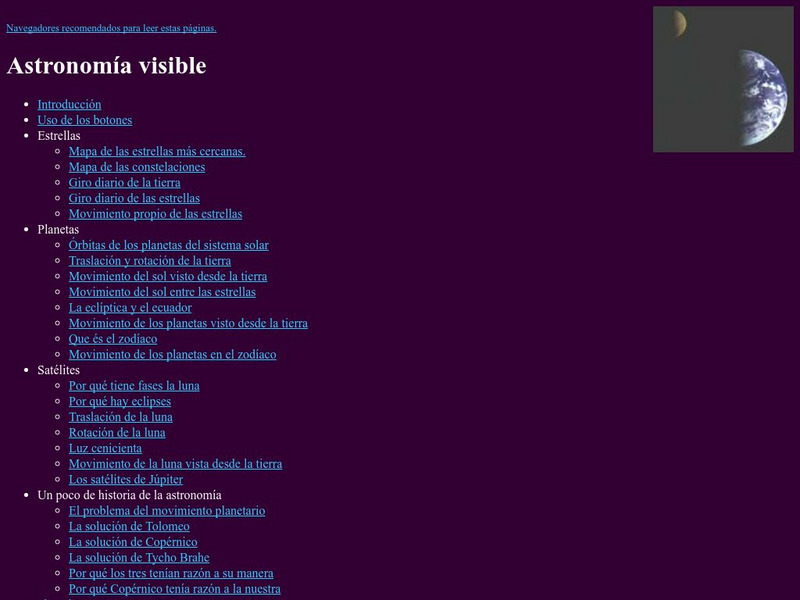Cosmos 4 kids
Cosmos4 Kids: Solar System Details: Comets
All about comets! What are they? How do they occur? What are their effects in the solar system? The brief, easy to understand text make this site most suitable for the younger researcher.
NASA
Nasa: Solar System Exploration: Planets
This impressive compilation of ideas is a great source for space science. Loaded with extra links for further information on the solar system.
Cosmos 4 kids
Cosmos4 Kids: Everything Gathers
Understand that smaller parts make up the larger parts of our solar system. See that gas and dust come together to form a star, small rocks and asteroids come together to form planets, and so on. This page is a reference page that...
Cosmos 4 kids
Cosmos4 Kids: Solar System: Pluto
Learn all about Pluto ..its discovery, basic facts, recognition as a planet, and most recently, its 'demotion' from a planet to a dwarf planet. The brief, to the point text makes this site most suitable for younger researchers.
E-learning for Kids
E Learning for Kids: Science: Madagascar: What Is the Solar System?
Patrick loves being a pirate, but he'd prefer to be an astronomer. Join him, and learn about everything high in the sky like the moon, stars, and asteroids.
Stanford University
The Hidden Picture
What can you see in the sun's granules? This site includes links and further information for teachers on how to teach convection.
American Museum of Natural History
American Museum of Natural History: Ology: Cosmic Cookies
Roll your mouse over the planets in our solar system to read a vignette about each. Then, link to the recipe for directions to create miniature planet cookies that look like the real thing.
Wolfram Research
Wolfram Science World: Copernicus, Nicolaus (1473 1543)
A biography of Nicolaus Copernicus and his contribution to science, specifically astronomy.
Nine Planets
The Eight Planets: Just for Kids
Here is a clear, simple picture of the solar system. Click on the names of the planets to learn more about each. Clicking on underlined terms takes you to more and more detailed scientific information.
American Museum of Natural History
American Museum of Natural History: Ology: Astronomy: In Pictures: Beyond Planet Earth
What would it be like to travel across the solar system and explore space? Take a look at some of the places that humans might go to someday, and the questions that scientists are asking.
Texas Instruments
Texas Instruments: Distance From Earth Time Line
A number line showing the distance from Earth to the eight planets and the Sun.
Texas Instruments
Texas Instruments: Solar System
This activity is designed to assess the comprehension of concepts related to the planets and other astronomical bodies in the Solar System.
Science Education Resource Center at Carleton College
Serc: Experimenting With Angular Diameter and Distance (Study of Outer Space)
In studying the solar system, students compare the relative sizes of the sun and the moon, and experiment with angular diameter, apparent diameter and distance.
Science Education Resource Center at Carleton College
Serc: Investigating Ordering Planets: Math Connections & Number Sense in Science
In this Solar System Investigate, students will determine ways to order the planets. Teacher directed inquiry will suggest that they first order the planets according to their distance from the sun. Students will then work on their own...
Science Education Resource Center at Carleton College
Serc: Geo Logic: Terrestrial and Jovian Planets
Through GEOLogic puzzles, students are given clues about properties about the terrestrial and Jovian planets respectively, and challenged to match the planet with the correct equatorial radius, mean orbital velocity, and period of rotation.
Science Education Resource Center at Carleton College
Serc: Activity: Is There Really Life on Mars?
This Public Broadcasting Service (PBS) activity explores the controversy over whether or not there is life on Mars. Part of the Mysteries of Deep Space Program that originally aired in April 1997, the activity includes instructional...
Science Education Resource Center at Carleton College
Serc: Build Your Own Solar System
This Java applet creates a model of a solar system with user-defined data. Users can create a solar system with up to four planets, choosing the star type at the center of the solar system, planet name, size, eccentricity of orbit and...
Science Education Resource Center at Carleton College
Serc: Mars Exploration Program Landing Sites
This site features clickable interactive maps and data sets about landing sites on Mars.
Science Education Resource Center at Carleton College
Serc: Mars Student Imaging Project (Msip)
Links to the Mars Student Imaging Project (MSIP), an award-winning authentic inquiry-based learning and student-centered education project which offers students the opportunity to be involved in authentic Mars research. The website...
Kidport
Kidport: Space Science
This complete resource will help students to improve their understand of space exploration. Includes images of the universe, galaxies, stars and planets.
Ministerio de Educación (Spain)
Ministerio De Educacion: Astronomia Para Ninas Y Ninos
Learn basic astronomy and travel through space. After you finish the lessons you can take the evaluation to obtain the clues needed to play the fun space games.
National Institute of Educational Technologies and Teacher Training (Spain)
Ministerio De Educacion: La Situacion De La Tierra en El Universo
Throughout this unit you will make an imaginary journey that will transport you from the remotest infinity of the universe around us, to the surface of our planet. During this trip you will see the main features and components of our...
National Institute of Educational Technologies and Teacher Training (Spain)
Ministerio De Educacion: El Universo, La via Lactea Y El Sistema Solar
Ministerio de Educacion: El Universo, la Via Lactea y el Sistema Solar.
Ministerio de Educación (Spain)
Ministerio De Educacion: Astronomia Visible
This site has maps of the nearest stars and constellations. Earth and star daily rotation, proper motion of the stars and many other topics about the solar system are also shown.Read phonetically






